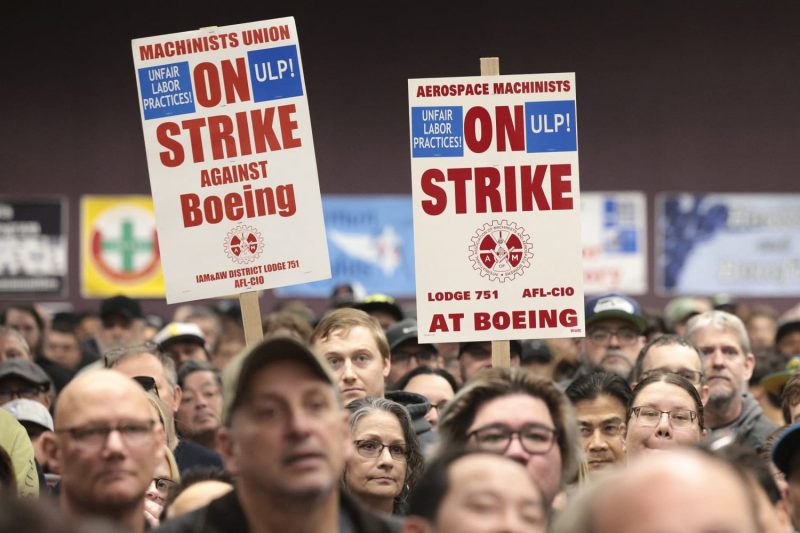In an unprecedented move, the machinists at Boeing have overwhelmingly rejected a new labor contract, resulting in the prolongation of an already drawn-out strike. The refusal to accept the new deal signifies a deep discontent within the workforce and adds an unexpected twist to economic pressures the aerospace giant has been facing.
The vote to reject the new contract saw almost 70% of the workers expressing dissatisfaction with the deal, showcasing the massive discontent brewing among the machinists. The primary bone of contention is the company’s consistent attempts to erode union influence, alter traditional pension methods, and institute performance-based pay. The workers see this as a blatant disregard for labor rights and an attempt to nullify the purpose of unions.
The rejected contract came after weeks of negotiations between union officials and Boeing, in an aim to prevent strike action. The proposed contract included wage hikes, bonuses, and the retention of health benefits but failed to address the workers’ pressing concerns regarding job security and future pension provisions. The machinists argue that despite receiving sizeable profits, the company is still attempting to retract essential benefits.
With union influence being under threat, machinists see the strike as essential in preserving their rights and ensuring their voices are heard. Although there is increased pressure on workers to return to work given the economic scenario, they remain resiliently on strike, putting equal, if not more pressure on the company.
The strike’s extension is a game-changer for Boeing as it could hamper production, primarily in its commercial airplanes division and potentially slow down delivery to customers. This continued strike undermines Boeing’s efficiency and productivity, creating severe economic consequences for the company.
Adding to Boeing’s adversity is the ongoing devastation in the aviation industry caused by the COVID-19 pandemic, which has already seen a severe decline in global travel and subsequently, a drop in aircraft orders. The strike not only threatens to mar the company’s reputation but also raises uncertainty over its future aircraft deliveries amidst recovering global aviation.
As tensions continue to escalate and the landscape remains tumultuous, the strike has brought into focus the essential role of the workforce in an organization. This labor rejection act sets a precedent, highlighting the critical role of collective bargaining in achieving fair labor practices.
Naturally, this has long-term implications for Boeing’s labor relations practices as many deem the company to be currently taking a more aggressive approach. In the future, the company will need a more cohesive approach to equally values employees and fiscal responsibilities. For now, it appears that the machinist strike will exert considerable pressure on the corporation’s ambitions, forcing it to step back and reassess its philosophy on labor relations.
In light of current events, the overarching narrative becomes one of power dynamics within a large corporation. This incident serves as a reminder that preservation of workers’ rights must not be overlooked in the chase for profits. Despite the setback, this turn of events presents an opportunity for Boeing to reevaluate its labor practices and negotiate a new contract that adequately addresses the concerns of the machinists.




